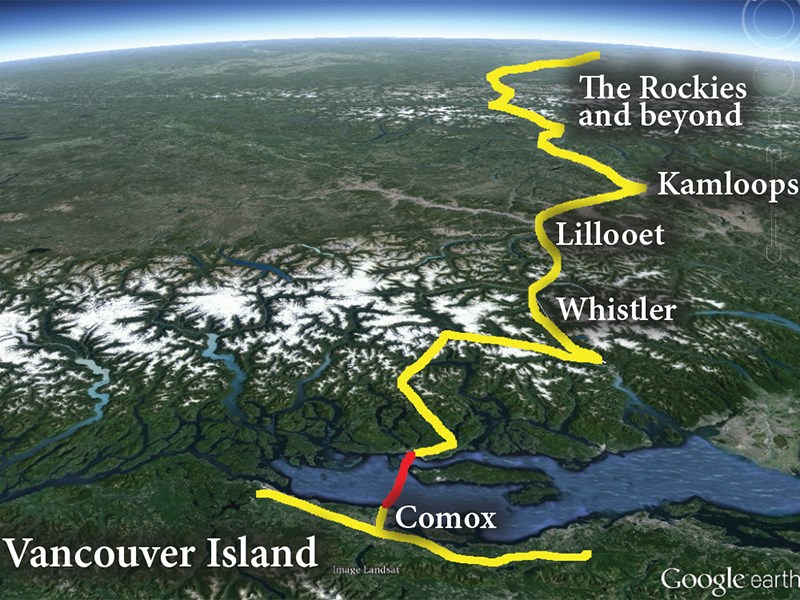Powell River Regional District board will wait until the provincial government’s fixed-link study is released before providing further financial aid to a local group advocating for the construction of a provincial highway connecting Powell River to the interior of BC.
The regional district’s committee of the whole defeated a recommendation to provide a $4,000 grant-in-aid to Third Crossing Society at its meeting on Thursday, May 11. It is the society’s second request since March when it asked for a $5,000 grant to seek province-wide support through attending the Association of Vancouver Island Coastal Communities and Union of BC Municipalities conferences.
The regional board has postponed the request until the release of the government’s fixed-link report, currently being prepared by consultants RF Binnie. The Binnie report was expected in December 2016, but has been pushed back and has yet to be released.
“Third Crossing had come to us earlier and we deferred our decision,” said regional district board chair Patrick Brabazon. “We said no because we’re waiting for the Binnie report, and now they’ve come back again asking, but without any new purpose.”
Brabazon said even if the Binnie report is further delayed, he does not think the regional district board is going to jump in to support one fixed-link option over any other.
Third Crossing president Gary Fribance said that his group was disappointed the regional district has not seen fit to support its advocacy of the highway connection.
“We understand their position,” said Fribance. “We’re going to do some private fundraising and reduce our budget to something less than we believe it should be.”
He said Third Crossing’s board met Wednesday, May 17, to discuss the society’s finances.
“We have an action plan and we’re going to pursue it,” he said. “It’ll be business as usual for us.”
The regional district provided previous grants to the society of $1,000 in 2015 and $3,000 in 2016.
Fribance said Third Crossing supports a highway running east from Powell River connecting just north of Squamish, as well as the construction of a bridge across Howe Sound at Anvil Island.
Fribance estimates that the interior highway project could cost as much as $2.5 billion, but would create an economic benefit in the region of $3 billion in the first 10 years.
Fribance said his group will continue its advocacy throughout the province for a connection between mid-Vancouver Island to the BC interior communities.
Meanwhile, Brabazon said he is continuing to work with Sunshine Coast Regional District chair Gary Nohr on the connectivity of the Langdale and Earls Cove ferries and waiting to see what effect the provincial election will have on government transportation priorities.
Fribance said it is doubtful that the Binnie report will provide the rationale for the province to build a connection primarily for Metro Vancouver and Sunshine Coast.
“There is simply not enough population,” said Fribance, “to justify the cost.”



